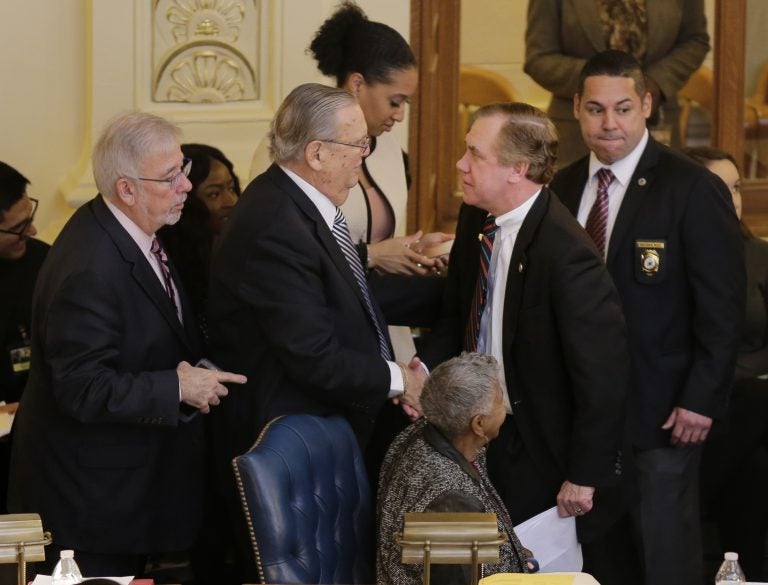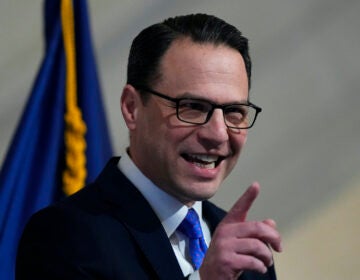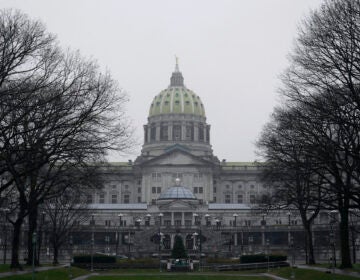N.J. Legislature passes $15 minimum wage, Murphy vows to sign it into law
Democratic lawmakers said the state’s current $8.85 minimum was insufficient for survival. But business groups and some in the GOP say it will prove too costly.

Assembly Speaker Craig Coughlin, second from right, is greeted by colleagues after a vote to raise the minimum wage in Trenton Thursday. Gov. Phil Murphy intends to sign the measure into law Monday. (Seth Wenig/AP Photo)
New Jersey is on its way to having a $15 minimum wage.
Both the state Senate and Assembly passed legislation Thursday to gradually hike the state’s base wage to $15 an hour for most workers by 2024.
Gov. Phil Murphy quickly tweeted his intention to sign the bill within days.
“On Monday, I’ll sign this bill into law,” Murphy said. “Working families can’t wait.”
A few weeks earlier Murphy had come to an agreement with state Senate President Steve Sweeney, D-Gloucester, and Assembly Speaker Craig Coughlin, D-Middlesex, on the details of the plan.
Many workers will see their minimum wage gradually rise to $15 from the current $8.85 by 2024, but there are exceptions.
Tipped workers will make at least $15 per hour by 2024, but a portion of that can include their tips.
Seasonal workers and small-business employees will reach $15 by 2026.
Agricultural workers will receive a $12.50 minimum wage by 2024, when state officials will decide whether to boost it to $15 by 2027.
“I see, when I drive up the highway, more Maseratis, fancy $300,000 cars, than I’ve ever seen in my life. You used to see them once in a while,” Sweeney said before Thursday’s vote. “The tables have turned. The wage gap is so large now.”
Advocates and Democratic lawmakers said the state’s current minimum wage was insufficient for working people and families to survive.
“Most middle-income families are a paycheck away from not being able to pay their rent, their mortgage, their food, their car payments, their insurance,” said state Sen. Joe Vitale, D-Middlesex. “Because they’re just unable to save.”
The measure sailed through both houses Thursday afternoon over the criticism of business groups and Republican lawmakers who warned that some employers will be unable to afford the mandate.
Opponents suggested that the increased minimum wage could cause small businesses to shutter and local governments to raise taxes or reduce services.
“We have a spending problem here,” said Assemblyman Hal Wirths, R-Sussex. “We have to get down to smaller government and cut expenses for businesses and families to survive.”
WHYY is your source for fact-based, in-depth journalism and information. As a nonprofit organization, we rely on financial support from readers like you. Please give today.




